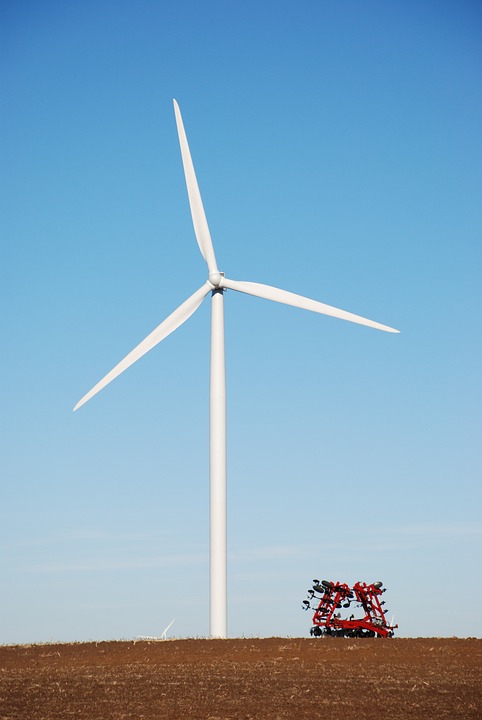Is Propane Clean Energy? Examining the Environmental Impact of Propane Fuel
Introduction
Propane is a widely used fuel source across various sectors, including residential heating, industrial applications, and transportation. As discussions around “clean energy” become increasingly prevalent, it is essential to understand how propane fits into this narrative. Clean energy typically refers to energy sources that produce low emissions and are often renewable. This exploration aims to assess whether propane qualifies as a clean energy source based on its environmental impact.
What is Propane?
Propane, chemically known as C3H8, is a hydrocarbon gas that primarily derives from natural gas processing and crude oil refining. It is commonly used for:
– Heating homes and water
– Cooking
– Fueling vehicles and equipment
Due to its portability and high energy output, propane plays a significant role in energy markets, particularly in areas lacking access to natural gas pipelines.
Propane’s Emissions Compared to Other Fuels
When evaluating propane’s environmental footprint, it is crucial to compare its emissions with those of other fuels:
– Lower CO₂ Emissions: Propane emits significantly less carbon dioxide than coal and gasoline. While it does produce some CO₂, its overall carbon footprint is lower than many fossil fuels.
– Reduced Air Pollutants: Propane generates fewer particulates and air pollutants compared to diesel, leading to improved air quality. For example, propane emits 60% less carbon monoxide than gasoline and nearly 100% less particulate matter than diesel[3][4].
Despite these advantages, propane remains a fossil fuel and is not entirely carbon-neutral.
Advantages of Propane as a Cleaner Fuel
Propane offers several environmental benefits:
– Lower Sulfur Content: Its low sulfur content results in reduced emissions of harmful pollutants like nitrogen oxides (NOx) and carbon monoxide (CO).
– Efficiency: Propane appliances often have higher efficiency ratings compared to electric ones. For instance, propane water heaters can heat water more quickly and consume less energy overall[1][2].
– Non-Toxicity: In the event of a leak, propane evaporates into the atmosphere without contaminating soil or groundwater, making it safer for the environment compared to other fuels[2].
Is Propane Renewable?
While conventional propane is derived from fossil fuels, there is a growing interest in “renewable propane.” This type of propane can be produced from organic materials such as:
– Animal fats
– Vegetable oils
– Biomass
Renewable propane has a much lower carbon intensity—up to four times lower than conventional propane—making it a more sustainable option[5][6]. However, its availability is currently limited compared to traditional propane.
Propane in the Clean Energy Debate
Propane is often viewed as a transitional fuel in the shift toward lower emissions. It serves as a “bridge fuel,” providing cleaner alternatives to coal and oil while renewable energy technologies continue to develop.
In comparison with truly renewable sources like solar or wind energy, propane does not achieve the same level of sustainability but can complement these systems by providing reliable backup power when renewable sources are insufficient[1][7].
Propane’s Role in a Sustainable Future
In the short term, propane can enhance the integration of renewable energy systems, especially in regions with limited infrastructure. Its potential applications include:
– Hybrid Systems: Using propane alongside solar or wind power can provide consistent energy supply.
– Backup Power: Propane generators can serve as reliable backup options during outages or when renewable sources are not producing enough energy[1][6].
FAQs
– How does propane compare to natural gas in terms of emissions?
Propane generally emits fewer greenhouse gases than natural gas due to its lower carbon content.
– Is there such a thing as “renewable” propane?
Yes, renewable propane is produced from biomass and other organic materials, offering a lower carbon footprint.
– Why is propane considered cleaner than gasoline or diesel?
Propane produces significantly lower levels of harmful emissions such as NOx and particulate matter compared to gasoline and diesel.
– Can propane be used alongside renewable energy sources?
Yes, it can complement renewable systems by providing backup power and enhancing overall efficiency.
– Is propane carbon-neutral?
No, while it has lower emissions than many fossil fuels, it is not entirely carbon-neutral.
– What are the environmental downsides of using propane?
As a fossil fuel, it contributes to greenhouse gas emissions; however, its impact is significantly lower compared to coal or diesel.
Conclusion
In summary, while propane is recognized as a cleaner-burning fossil fuel with lower emissions compared to many alternatives, it does not fully meet the criteria for clean or renewable energy. It plays an essential role as a transitional fuel that can help reduce greenhouse gas emissions while supporting the broader shift toward sustainable energy solutions. As renewable technologies advance and the production of renewable propane increases, its role in achieving a cleaner energy future may become even more significant.

Kyle Whyte is a notable scholar and professor at the University of Michigan, holding positions such as the George Willis Pack Professor in the School for Environment and Sustainability and Professor of Philosophy. Specializing in environmental justice, his work critically examines climate policy and Indigenous peoples’ ethics, emphasizing the nexus between cooperative scientific endeavors and Indigenous justice. As an enrolled Citizen Potawatomi Nation member, he brings a vital perspective to his roles as a U.S. Science Envoy and member of the White House Environmental Justice Advisory Council. His influential research is supported by various prestigious organizations including the National Science Foundation, and disseminated through publications in high-impact journals. Kyle actively contributes to global Indigenous research methodologies and education, with affiliations to numerous institutes and societies dedicated to traditional knowledge and sustainability. Recognized for his academic and community engagement, Kyle has earned multiple awards and served in various visiting professorships. His efforts extend to leadership positions on boards and committees focused on environmental justice nationwide.
